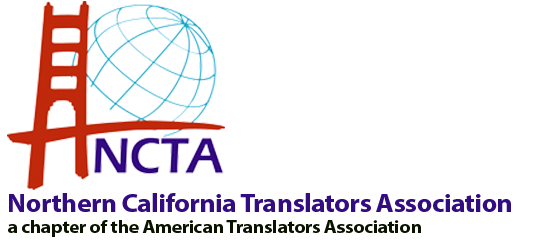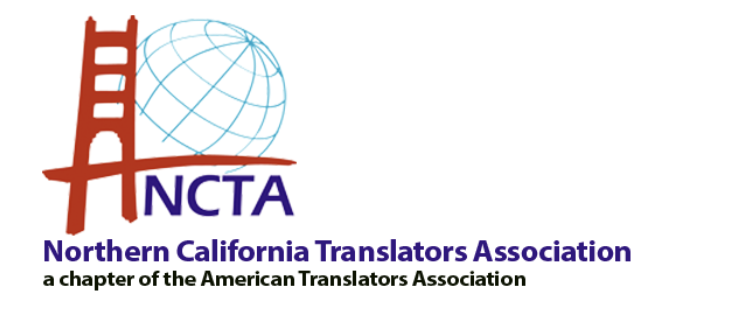Q: Who is qualified to provide “official translations”?
Q: I’m fluent in several languages. How do I become a translator/interpreter?
Q: What is the difference between a translator and an interpreter?
Q: How can I get training?
Q: How do I get started and find work?
Q: How can I put together an effective résumé?
Q: How do I know what to charge for my services?
Q: How can I obtain certification?
Who is qualified to provide “official translations”?
According to the State of California Judicial Council website, http://www.courts.ca.gov/3796.htm
“Government Code §27293 permits California county clerks to certify documents translated into English only if the document has been translated by American Translators Association certified translators, California Certified Court Interpreters, or California Registered Interpreters. California Certified Court or Registered Interpreters are authorized in a judicial proceeding to interpret orally the verbal content of documents, but the Judicial Council does not otherwise test or certify an interpreter’s written translation skills.”
I’m fluent in several languages. How do I become a translator/interpreter?
Being fluent in more than one language does not automatically make you a translator (written text) or interpreter (spoken word). However, if your education, life or work experience has led you to translate and/or interpret and you have found that you have exceptional skills in this area, you may be on your way to becoming a professional translator or interpreter. Many people in the United States enter into this profession through working in a bilingual environment, by translating or interpreting for their family or community, or through formal education. Most professional translators have at least a bachelor’s degree in language or a technical field that forms the basis of their specialization, excellent writing and editing skills, an eye for detail, and translate only into their native language. It is important to have an area of expertise that you specialize in. (Click here for an excellent article on this very subject in our quarterly journal Translorial.) Most professionals make their living translating business or scientific and technical documents rather than literary works. In addition to language skills, a translator/interpreter must be able to market him- or herself and form good relationships with reliable, paying clients. Joining the professional association NCTA and attending meetings, workshops and social events are good ways to learn about the profession, develop skills, network with others who work in this profession, and market your services through the NCTA Translator and Interpreter Referral Service.
Translators and interpreters must keep abreast of the fields in which they translate and have a thorough knowledge of their working languages and the respective cultures. Work on your language skills by reading regularly in your non-native language, and keep up with recent vocabulary and slang.
If you are new to the profession, start with a realistic assessment of your abilities. Never accept assignments that are too difficult for your current level of competence. If necessary, have your work edited, preferably by someone well versed in the subject of the translation. If you keep abreast of current developments in your field of specialization and have access to the right reference materials, then with continued practice and self-education, your work can reach a professional level. And yes, there is work out there: the U.S. Bureau of Labor Statistics predicts 46% growth in this field from 2012-2022.
For guidelines, please see the American Translators Association Code of Ethics and Professional Practice.
What is the difference between a translator and an interpreter?
In the broader sense, a translator is anyone who conveys information from one language to another. In the more narrow sense, however, a translator is someone who works with the written word, while an interpreter works with the spoken word. The National Council on Interpreting in Health Care has produced a quick fact sheet about the distinction of interpretation and translation.
Practice translating and interpreting on a daily basis. Check with colleges and universities in your geographic area to see if they offer translation or interpretation courses. ATA offers the publications found at www.atanet.org/publications/index.php. Review NCTA’s list of resources for translators or interpreters.
How do I get started and find work?
This is a process that takes time. First of all:
- Prepare a résumé indicating your translation/interpreting experience and background that can be e-mailed, in text and in PDF format, to potential clients.
- Be ready to give a price quotation and/or explain your rates.
- Know how to ensure that you will be paid for the work you do. For a sample services agreement, see http://www.atanet.org/careers/translation_agreements.php.
One consideration is whether you are interested in working for direct clients or through translation agencies. Marketing your services is an issue that is frequently discussed in NCTA meetings and workshops. Each translator or interpreter working as an independent contractor must determine the best way to market him- or herself and operate as a small business. Participating in NCTA’s Translator and Interpreter Referral Service is a good way to begin marketing yourself.
How can I put together an effective résumé?
A résumé must be designed to fit its target audience and purpose. If a permanent position comes along, for example, you can still submit a résumé outlining your freelance experience. But if you send a résumé describing your desire for a full-time job to an agency that is seeking freelancers, they will think you don’t know how they work and that perhaps you do not want freelance work.
If you do both interpreting and translating, you may need two résumés, or you may need a clear way of showing both types of experience on one résumé.
If you are just starting out, it will be easy to write your résumé. However, if you are making a career change, you will have to reprogram your mind to write a good résumé. The most difficult thing for someone changing careers to grasp is that a conventional résumé will not be effective. People are naturally proud of all their experience and want to write it all down, but only the parts related to translation and interpreting are relevant to your intended audience, so you should exclude most everything else.
A translation agency will not be impressed by a general experience résumé that doesn’t address what the agency is seeking. It forces the agency to wade through all your experience looking for the tidbits that relate to translating, and they won’t believe that you are really committed to your new career if you haven’t written a custom résumé.
And remember: a résumé should have a concise, one-page format and be in a neutral, cross-platform format such as PDF.
How do I know what to charge for my services?
Do the research, and adjust your fees over time in response to your work load and the level of your expertise: as the amount of work increases, you are more in demand and can charge more.
Some ways to research your fee range:
- Consider your personal income needs, business expenses, and other factors using a rate calculator such as the one found at www.atanet.org/business_practices/earnings_calculator.php or www.proz.com/?sp=rate_calc.
- Search freelancers’ databases in your language pairs and subjects (e.g., on www.proz.com). Some will have their rates displayed in their profiles.
- Speak informally with colleagues about their range of fees for specific services (e.g., Which language pair(s)? What subject matter? Turnaround time? File formats? Volume? By the word, character, line, or by the hour?).
- Check for resources such as the various ATA webinars on pricing and pricing strategies.
How can I obtain certification?
Translators and interpreters must present their unique skills and credentials to potential clients, and only accept work for which they are fully qualified through experience and/or training. These credentials will vary from one person to the next, and include educational background, work experience in translation and interpretation as well as areas of specialization. The most important credentials are usually subject area expertise and experience translating or interpreting in that subject. A Certification Exam for translators is offered by the ATA.



